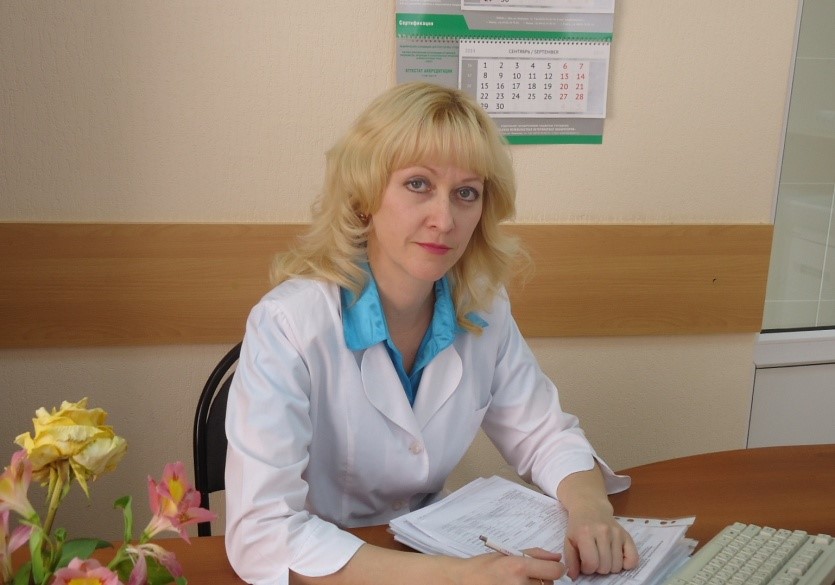


FEDERAL STATE BUDGETARY INSTITUTION "CENTRAL
SCIENTIFIC AND METHODICAL VETERINARY LABORATORY "
- Main
- About us
- Historical background
- Manager Team
- Organizational structure
- Moscow Testing Laboratory
- Tula Testing Laboratory
- Oryol Testing Laboratory
- Lipetsk Testing Laboratory
- Samara Testing Laboratory
- Chelyabinsk Testing Laboratory
- Phytosanitary Testing Laboratory
- Feedback
- Novosibirsk Testing Laboratory
- Altai Testing Laboratory
- FAQ
- Vacancy
- Tyumen Phytosanitary Testing Laboratory
- Our services
- Price list
- Documents
- Contacts
- Virtual tour
|
|
Head of Department: Oskina Irina Vladimirovna Date of Birth: 10/09/1972 Education: higher 1994 - Graduated from the Moscow State Academy of Applied Biotechnology. Qualification of veterinary-sanitary doctor of the specialty "Veterinary Medicine". 2012 - Graduated from the Russian Law Academy of the Ministry of Justice of the Russian Federation. Qualifications lawyer in the specialty "Jurisprudence". |
|
About department: The bacteriology department of the Tula testing laboratory is an important structural subdivision of the Institution. The department employs 6 people, 4 of them are veterinarians with experience of over 20 years. |
|
The Department of Bacteriology performs a state monitoring program to determine the microbiological indicators of the safety of feed and feed additives, as well as the state task to detect pathogens of infectious and invasive diseases among livestock animals and birds in the Tula, Ryazan, Lipetsk and Kaluga regions.
Employees of the department are involved in inter-laboratory comparison tests organized by Russian providers: FBHI` Rospotrebnadzor FSBI VGNKI and international providers FAPAS, confirming the correctness and accuracy of the research (discovery of bacteria of the genus of Salmonella, the bacteria Listeria monocytogenes, coliform bacteria (coliform bacteria), coagulase negative staphylococci and other microorganisms).
The specialists of the bacteriology department work on modern equipment, use domestic and imported nutrient media and test systems that meet international requirements.
The main tasks of the department are:
1. Conducting laboratory studies to determine the microbiological safety and quality of feed of animal and vegetable origin; diagnostic studies of biological and pathological material from animals in order to prevent and eliminate infectious and invasive animal diseases; bacteriological and parasitological studies of environmental objects (water, soil, swabs, indoor air, etc.).
2. The development and introduction of new research methods, devices, equipment.
3. Conducting internal and external quality control of microbiological research.
4. Creating conditions for the professional growth of department employees.
5. Ensuring the stability of the conditions for the functioning and development of the quality management system, the implementation of the Quality Policy.
In the bacteriology department, tests are carried out in three areas:
- bacteriological diagnosis of infectious diseases of animals, birds, fish and bees,
- parasitological studies of biological and pathological material and objects of the environment,
- sanitary and zoohygienic studies.
Diagnosis of diseases of bacterial etiology includes the study of biological and pathological material from animals on:
- anthrax,
- tuberculosis,
- paratuberculosis,
- listeriosis,
- Necrobacteriosis,
- salmonellosis,
- colibacteriosis,
- pasteurellosis,
- pseudomonosis,
- Clostridioza,
- campylobacteriosis (vibriosis),
- Streptococcal, staphylococcal and other infections.
A microbiological analysis of sperm is carried out with the aim of veterinary and sanitary quality control, the study of milk for the presence of mastitis pathogens, and the determination of the sensitivity of the isolated microorganisms to antibacterial drugs.
Diagnosis of invasive diseases
Specialists of the department conduct parasitological studies on helminthiasis and protozoa:
- strongyloses,
- fascioliasis
- dictyocaulos,
- ascariasis,
- dirofilariasis,
- coccidiosis,
- trichomoniasis,
- piroplasmosis,
- Nozematosis of bees and others.
Timely laboratory diagnosis allows you to prescribe an effective treatment and save the life of animals.
Sanitary and zoohygienic researches
All types of feed and feed additives are tested for suitability for feeding according to microbiological safety indicators:
- General bacterial contamination (QMAFAnM),
- the presence of bacteria of the genus Salmonella,
- bacteria Listeria monocytogenes,
- bacteria of Escherichia coli group (coliform bacteria),
- enteropathogenic types of E. coli,
- toxic anaerobes,
- Proteus
- pasteurella,
- enterococci,
- Pseudomonas aeruginosa,
- coagulase-positive staphylococcus and other microorganisms,
- industrial sterility of canned feed.
We investigate washes from the surfaces of premises and equipment to the quality of current and final disinfection, as well as from facilities subject to veterinary control, in terms of:
- General bacterial contamination,
- if titer,
- enteropathogenic types of E. coli,
- toxic anaerobes,
- Salmonella,
- bacteria of the E. coli group,
- Staphylococcus aureus,
- bacteria of the genus Bacillus.
Microbiological reseaches of water for watering animals, surface water bodies and wastewater are carried out by indicators:
- the total number of microorganisms (TBC),
- common coliform bacteria (CCB),
- thermotolerant coliform bacteria (TCB),
- spores of sulfite-reducing clostridia,
- pathogenic microorganisms, incl. salmonella,
- coliphages.
Bacteriological and parasitological reseaches of soil and organic fertilizers include the following indicators:
- the index of bacteria of the group of E. coli,
- enterococci index,
- pathogenic microorganisms, incl. salmonella,
- eggs and larvae of worms,
- cysts of pathogenic intestinal protozoa,
- larvae and pupae of synanthropic flies.



